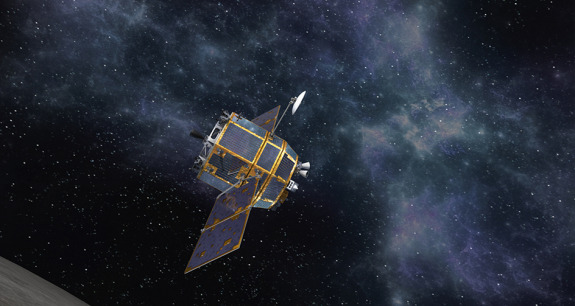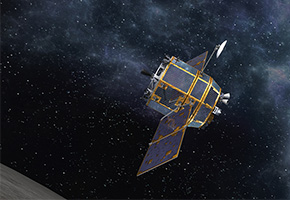
KPLO
About
The Korea Pathfinder Lunar Orbiter (KPLO) is South Korea's first lunar mission. It is developed and managed by the Korea Aerospace Reasearch Institute (KARI) and is scheduled to launch in 2019 to orbit the Moon for 1 year carrying an array of South Korean experiments and one U.S. built instrument. The objectives are to develop indigenous lunar exploration technologies, demonstrate a "space internet", and conduct scientific investigations of the lunar environment, topography, and resources, as well as identify potential landing sites for future missions.
ShadowCam is a focused investigation of the Moon’s permanently shadowed regions (PSRs) that will provide critical information about the distribution and accessibility of volatiles in PSRs at spatial scales required to both mitigate risks and maximize the results of future exploration activities. ShadowCam is a high-heritage instrument based on the successful Lunar Reconnaissance Orbiter Camera (LROC) Narrow Angle Camera (NAC) and will be over 800× more sensitive than the current NAC. ShadowCam will address three of the four strategic knowledge gaps (SKGs) through high-resolution, high signal-to-noise ratio imaging of PSRs illuminated only by reflected light, without duplicating measurements from KARI instruments (ShadowCam will saturate while imaging illuminated ground, with no harmful consequences to the shadowed portion of the image).
Faculty
KPLO Faculty

Lynn Carter
Associate Professor, University Distinguished Scholar


